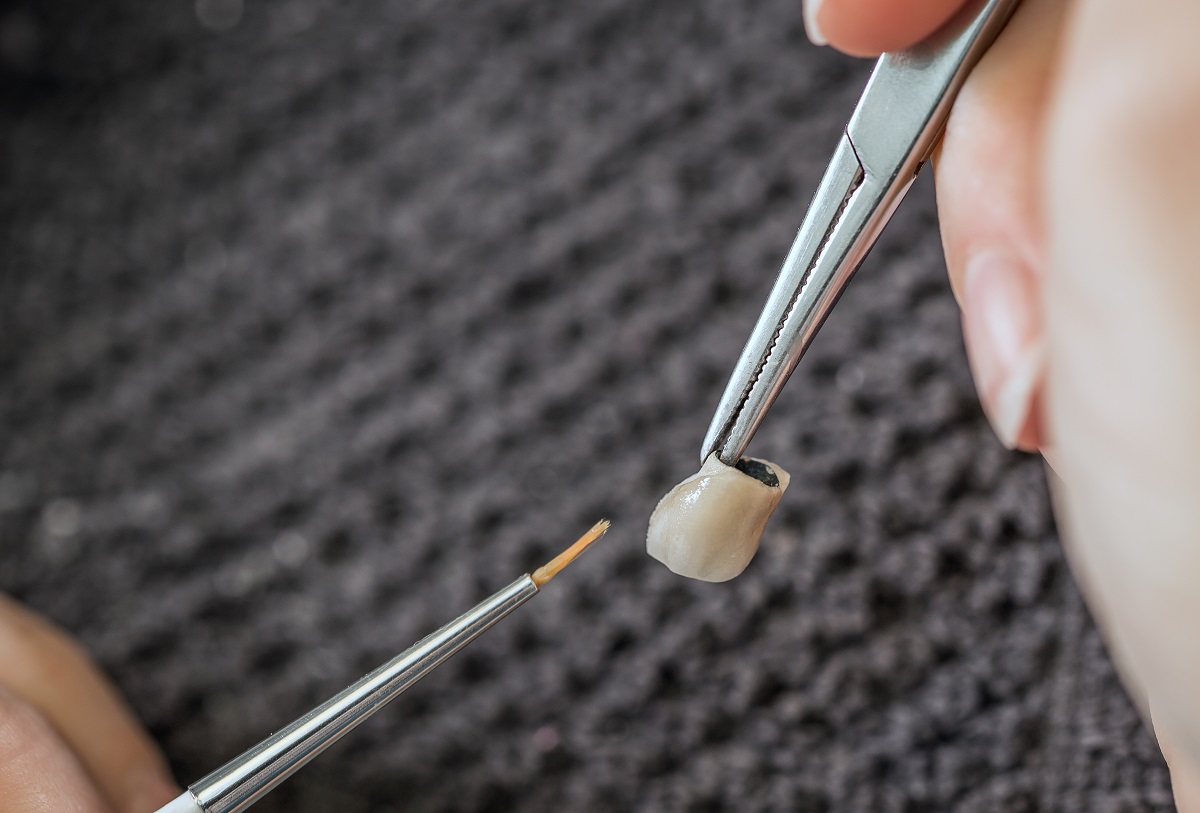How to Fix Small Teeth: 3 Options from Your Dentist

How to Fix Small Teeth: 3 Options from Your Dentist
How do you fix small teeth?
- Dental crowns
- Dental veneers
- Gingivectomy
Teeth come in all shapes and sizes. For some of you, having smaller-than-average teeth can make it harder for you to feel confident in your smile. But aside from being an aesthetic concern, this could also cause problems with eating and oral health. It can be the culprit behind a misaligned smile or wide gaps in between teeth. That’s why you might be wondering how to fix your small teeth.
Microdontia is the term used to refer to teeth that are smaller or look smaller than normal. It’s common to have microdontia in a couple of teeth, but there are also rare cases when all the teeth are small. This is caused by genetics or bad habits such as excessive teeth grinding and clenching.
If you want to fix your small teeth, your dentist will give you a few options. The best choice will depend on how much size needs to be added and what your preferences are. Keep on reading to learn more!
Dental Crowns

Dental crowns are tooth-shaped coverings made of metal, porcelain, or zirconia. The crowns are used to protect a weak tooth, restore a broken tooth, or cover misshapen teeth. They are designed to fit over your existing tooth and can last many years.
But other than these, dental crowns are also a suitable treatment to fix small teeth. Your dentist might recommend this if you have a few teeth that need to be treated. It’s also recommended if you want something durable. Because a crown covers your entire tooth, it also serves as a protection to your smaller — or often weaker tooth.
Dental crowns can last between five and 15 years. To increase the lifespan of the crowns, you need to be consistent with your oral hygiene practices and avoid teeth grinding or chewing on hard food.
Dental Veneers
Dental veneers are thin coverings that go over the front of your tooth to give it a more even appearance. These are usually made of resin-composite, porcelain, or zirconia material. The procedure is often done for patients that are unhappy with the look of their smile. This could be due to discoloration, broken teeth, worn down teeth, gaps, or irregularly shaped teeth.
Veneers can create the illusion of longer and wider teeth. It’s customizable, long-lasting, and does not affect your bite. These mimic the translucency of your real teeth, so they look more natural. If you don’t want that ‘perfect’ smile, you can even ask for tiny flaws too.
Compared to crowns, dental veneers only cover the front side of your tooth. The procedure requires less tooth preparation, too. These will typically last for more than a decade, depending on the material you choose. To learn how veneers work, you can watch Kally Araneta’s experience here.
Gingivectomy

Gingivectomy is the surgical method to remove gum tissue — which is also referred to as the gingiva. It’s normally used to treat gingivitis, which is an inflammation of the gums due to bacterial infection. This is necessary to prevent the worsening of the infection to a condition called periodontitis.
Other than gum health issues, gingivectomy can also be performed to modify your smile for cosmetic purposes. It’s useful when you have a gummy smile, which happens when you have an abnormal amount of gum tissue — leading to an illusion of the teeth being shorter than it is.
The goal of this procedure is to uncover more parts of your teeth to reveal a more proportionate smile. That’s why it might not be suitable if you have short teeth because of years of teeth grinding or clenching.
Because it’s a surgery, you also need to undergo a healing phase. The length of recovery will depend on how much gum tissue was removed. The more gum tissue is removed, the longer the recovery period is. When the laser is used for the procedure instead of a scalpel, there will be less bleeding and a faster healing time.
If you’re interested in how gingivectomy works, you can check out Doris Cheong’s experience here.
Key Takeaway
Having smaller teeth might not be an issue for others, but it might be affecting your confidence. Other than that, it can also cause problems with chewing your food and cleaning your teeth because of misalignment or wide gaps. Fortunately, you can modify your smile with the help of dental treatments!
If you want to know how to fix your small teeth, you can contact us here at Elevate Dental! With the help of our experienced and skilled cosmetic dentists, you can achieve a more proportional and even smile. They will help you choose what procedure will fit best when it comes to your preferences and budget. But whatever treatment you undergo, our staff will make sure that your whole experience will be comfortable.













